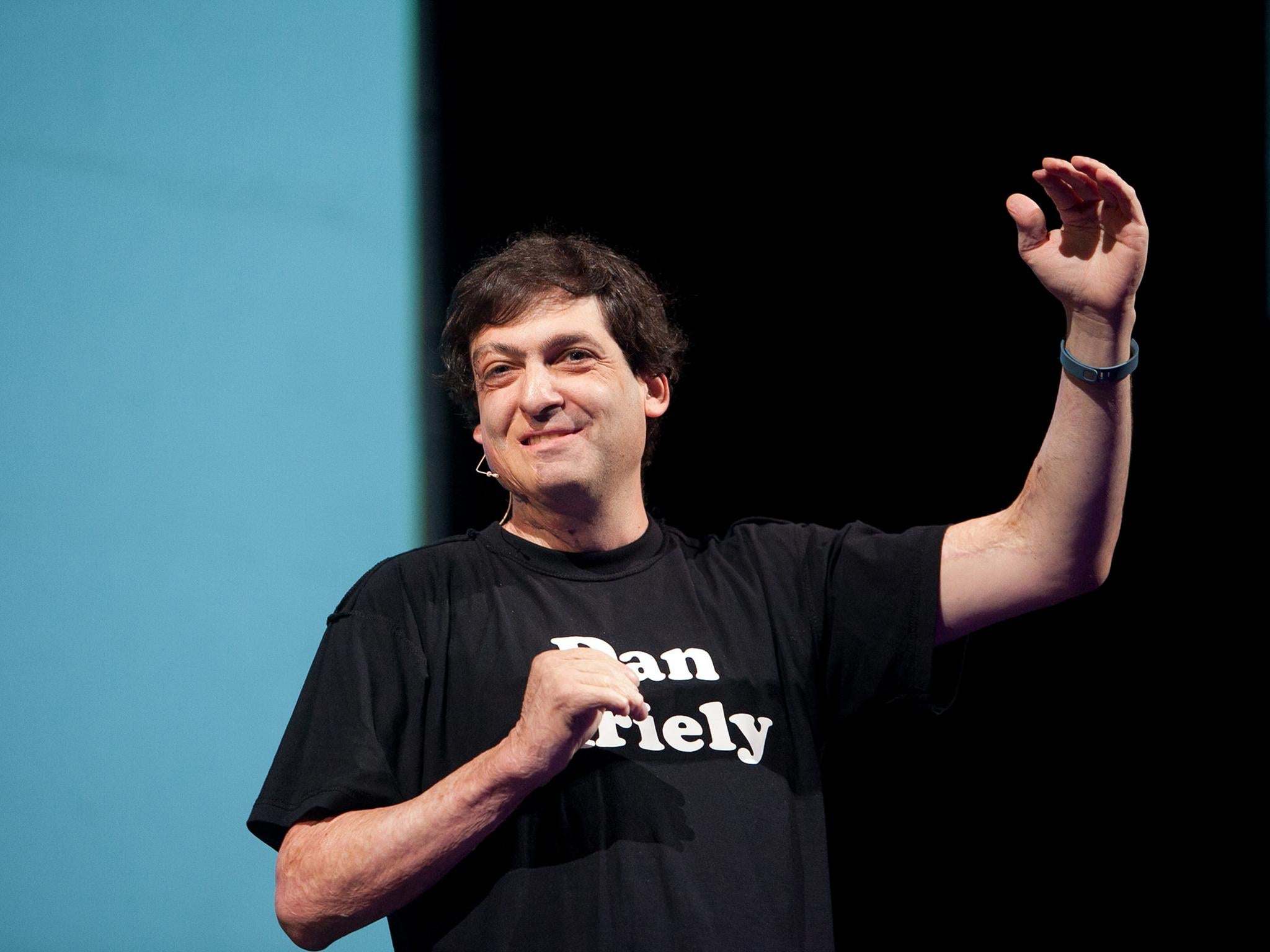Tips, tricks and mistakes to avoid when motivating yourself, according to a psychologist
Professor Dan Ariely's videos about psychology and motivation have wracked up more than eight million views on YouTube

Those who feel guilty for skipping a trip to the gym or switching on the TV instead of picking up a book after a long day at work can take comfort in the fact that even Dan Ariely, an expert in motivation, can struggle to keep on track.
Even Ariely, the James B. Duke Professor of Psychology and Behavioral Economics at Duke University whose TED Talks online have been watched over 7.8million times, had to form a pact with his cousin to force himself to get fit and lose weight.
In his new book The Payoff, Professor Ariely investigates what motivates us and how we can motivate each other.
The Independent spoke to him about the tips and tricks we can use to get motivated, and how to keep up the momentum.
What are some commons ways that people trip up when they try to motivate themselves?
What we often get wrong is our understanding of pleasure. When we think of pleasure we think of short-term pleasure like eating chocolate and we strive towards it and we try to motivate ourselves and other people towards it. But in fact the things that give us pleasure are very different, like writing a book or running a marathon or helping other people.
These things don’t maximise momentary joy but they give us a sense of meaning and accomplishment and achievement, and create anticipation and memories. We focus too much on short-term pleasure not long-term pleasure.
What leads us to behaviour that is irrational and goes against motivation, like self-sabotage?
The clearest example of self-sabotage is of a student going out at night late before an exam. What happens is that when we think there's a chance that we might fail, we're afraid of failure as society evaluates us on this failure. What we do is something drastic that will let us point a blaming finger at something else.
Why do some people seem more motivated than others?
Lots of people write to me about injuries because I was injured. [Ariely suffered third degree burns in an accident].
One of the lessons I’ve found is that people who are very badly injured but very successful are the people who changed the focus of success.
One of the people I spoke to tries to dress himself everyday. It takes him about 45 minutes.
He measures his own success and speed and that's his daily struggle. But he's not worried about the meaning of life and the big purpose he focuses on smaller things. It's key to all of us being more motivated. We just need to look for those small wins on a daily basis.

What are some other proven ways to motivate yourself?
Celebrate success. We often don’t give ourselves time to celebrate success but we finish something and say 'what’s next?' Celebrate when you finish a project, for example, because that's what you have control over.
What is the key to keeping up momentum?
It's connected to the sense of meaning and meaning comes from lots of things: from conquering a mountain or overcoming complex problems or helping other people. Remind yourself what the final goal is to get through the drudgery.
Do you ever struggle to motivate yourself?
A few years ago I decided I needed to start exercising and lose weight so I made a deal with my cousin. We made a contact to stop eating deserts in the week to exercise three times a week. We created strict rules for what exercise and eating meant and a system of accountability, and together those things have helped me dramatically.
Join our commenting forum
Join thought-provoking conversations, follow other Independent readers and see their replies
Comments
Bookmark popover
Removed from bookmarks